The point of The Whole Social is to look at current events through a wider lens — to see the systems they’re a part of, and how those systems need to change. In most articles I try to explore this with a bit more depth, but there’s always so much happening that I occasionally publish a “Notes on the News” so I can just make a few comments on a few different topics.
Hope they inspire some new thoughts in you!
The Bigger Picture of Election Interference
Elections are currently the main way we participate in our democracy. Though I don’t personally find them very inspiring (it’s hard to equate the idea of “self-rule” with occasionally voting for the “lesser of two evils” from a small group of wealthy elites), nonetheless, we should certainly care about their integrity.
And there are plenty of things to worry about. Some worry about the overwhelming influence of money on politics. Others, about voter suppression or that our voting processes aren’t truly representative (i.e. that we need instant runoff voting, or a national popular vote for president). Still others, that our voting systems aren’t secure.
But the main worry we see again and again in the news is the influence of foreign agents on our elections — especially Russia and China. From hacking emails to spreading misinformation, our adversaries seem to be everywhere.
Depending on your political persuasion, you might find this more or less worrying, but still, everyone can agree it shouldn’t be happening. This is, after all, the very definition of self-governance: Only those who belong to a community should have a voice in its governance.
Because of this, news stories about election interference usually have a certain moral clarity to them. They evoke a certain righteousness, a certain outrage, because the principle that’s being violated is so clear.
The problem is: If you’re in the US and you google “election interference,” you’ll only find stories about foreign interference in American elections, but nothing on American interference in foreign elections.
I had to go back to 2020 to find anything on this topic, and all I found was a book review in USA Today. That book — “Meddling in the Ballot Box” by Dov H. Levin — makes a claim that’s entirely obvious, but never discussed: that America is the biggest meddler, hacker, and influence-peddler of them all.
And really, what else would we imagine? That American intelligence agencies only play defense? That we don’t hack emails or spread misinformation? That we don’t give huge sums of money to our preferred candidates or train their party operatives in effective campaigning? That we don’t threaten or bribe foreign politicians so they’ll do our bidding?
Of course it’s a two-way street. The influence war is being waged in both directions — probably in all directions. Every government is probably doing it, according to wealth and capacity. No one has clean hands.
That said, if we’re serious about wanting to de-escalate this kind of influence warfare, we should be serious in how we portray it. So why does the media never talk about it?
Most importantly: What does it say about the strength of our convictions that we’re outraged when someone interferes with our elections, but never think we might be doing the same?
The fact is, we need to strengthen our ideals and convictions. You and I. If we only ever care about principles when our enemies break them, and not when we do, then our principles are worthless. They’re just a thin veneer for our own egoism, for the desire to have our own side win. We’ll never create a healthy world that way. We’ll never create a healthy world until our social ideals burn so brightly in us that there’s no thought about sides at all.
Is Threefolding the Only Hope for Myanmar?
The New York Times recently wrote an illuminating brief that summarized what appears to be both a hopeful and hopeless situation in Myanmar. Here’s their rundown:
Myanmar was hailed by the West as a promising new democracy when it began to transition away from military dictatorship in the early 2010s, and especially after the 2016 election of Aung San Suu Kyi, the Nobel Peace Prize-winning democracy advocate.
But when, a year later, the military expelled and murdered over a million Rohingya Muslims — and Suu Kyi defended its actions — the West turned its back on Myanmar in disgust.
Shortly thereafter the country reverted to military dictatorship.
But since then the people have fought back, forming pro-democracy militia groups and reclaiming over half the country. It’s even possible they could win the current civil war and remake Myanmar as a democracy.
Unfortunately though, there’s a snag. Like most countries, Myanmar is pluralistic — it’s multi-ethnic and multi-religious, and those groups are beginning to vie for power. Depending on who’s counting, there are between 59 and 135 different ethnic groups and all of them would like to see their own people in power, or at least carve out a small part of the country for themselves.
So what will happen? Will the different rebel groups find a way to share power? Will they even hang together long enough to defeat a shared enemy, or will they simply fall apart? In the absence of a clear path forward, a clear political solution that works for everyone, it seems likely the country will slip into chaos. Here’s how the Times describes it:
Some of these militias are just as likely to battle each other. This month, the rebels captured a key border town, only to relinquish it after one armed group withdrew its full support.
Already, much of Myanmar is fractured between different groups, all heavily armed. In other parts of the country, no one is fully in charge. Crime is flourishing. The country is now the world’s biggest producer of opium. Jungle factories churn out meth and other synthetic drugs that have found their way to Australia. Cybercriminals have proliferated…
And that’s where the NYT piece ends. So close to the triumph of democracy over dictatorship, but at the end of the day, extreme ethnic and cultural divisions make it unlikely.
So what is a clear path forward? The only way to overcome extreme ethnic and cultural divisions is to divorce them entirely from politics — to create a unified democratic state that has, at its foundation, the separation of ethnicity and state.
I’ve already described this in various articles on Israel and Ukraine (here, here, and here), and the principle is really no different than the separation of church and state: Every person needs to be able to practice their own religion, their own ethnic and cultural traditions, without state interference.
But this isn’t actually happening anywhere in the world. Every state is interfering in the cultural life of its citizens. Every government favors certain cultural groups over others. They do so through state churches. Through public schools that, by their nature, work to standardize and homogenize culture. Through the state’s adoption of “official” languages, symbols, and holidays. And through grant programs that support certain expressions of culture — certain forms of art, science, and medicine — over others.
Sure, such cultural abuses aren’t as dramatic or violent as they are in Myanmar, where the military has expelled and murdered over a million Rohingya Muslims at the behest of Buddhist nationalist groups. But it’s the same thing. Buddhist nationalists simply want to preserve Myanmar’s “Buddhist identity,” and will use whatever political tools are at their disposal, whether that’s the state’s army or the state’s schools.
What’s needed is a clear political agreement that separates culture and state entirely (which is a crucial pillar of social threefolding). If rebel groups in Myanmar had this one idea, then they’d have an actual path forward, an actual path towards unity.
Because true unity in a democratic state only comes about by safeguarding diversity in the realm of culture. When the state has no say over cultural matters and protects every one of its citizens, regardless of their culture, then people will finally be able to leave their cultural identity — and guns — at the door, and simply meet each other as equals.
Campus Protests and the Antisemitism Awareness Act
Campus protests and encampments have spread like wildfire in the last month. Students at over 150 universities have held demonstrations, and over 2000 of them have gone to jail for their actions. Amidst all this, the protestors have been widely scorned as antisemitic, with even the president describing a “ferocious surge” of antisemitism on college campuses.
In how it’s being portrayed, one might easily imagine protestors attacking Jewish students (of which I’ve yet to find an example), or at least confronting and harassing them, but there have been remarkably few such incidents.
There have been some pro-Hamas signs and chants, which are understandably alarming for our Jewish brothers and sisters, but overall the protests have been almost entirely peaceful (the 3% of protests that have become violent in any way, did so largely because they were attacked by counter-protestors or the police).
It’s in this moment that the definition of antisemitism is being stretched and strained in some truly strange ways.
The horrifying murder of 1,200 Israelis on October 7th has led to the horrifying murder of over 35,000 Palestinians, with widespread famine threatening to kill tens of thousands more. Is calling for a cease-fire really an antisemitic act?
Egypt has backed South Africa in calling Israel’s disproportionate response an act of genocide, and even the UN has spoken out by voting that Palestine should be free to become its own state. Can all these actions just be chalked up to antisemitism by global leaders?
It’s in this incredibly charged and overwrought environment that politicians in Washington are trying to pass the Antisemitism Awareness Act (H.R. 6090). But the act doesn’t just spread awareness, it’s a weapon that’s meant to chill speech. It does this by giving antisemitism a specific definition, and one that, again, stretches it in strange ways. For instance, under this law one can’t criticize Israel in the same way one can any other state.
In fact, the act calls into question my own critique — that Israel should abandon the Zionist project of self-determination; that the Jewish people will never find peace in the form of a nation-state. It’s the same critique I just made of Myanmar in my comments above — politically favoring one culture over another leads to constant unrest and bloodshed. And it’s the same critique I make of every single country in the world. I’m not just saying this of Israel; every nation-state should be dismantled. Nation and state must be separated if we’re to move towards peace.
But if the act passes, that view won’t be allowed in our universities. H.R. 6090 would create a government-imposed speech code, forcing administrators to micromanage what’s taught in classes, who speaks on campus, and what’s acceptable at student protests. If they don’t do these things, they risk losing federal funding.
But of course, criticizing Israel is totally legal. In fact everything contained in the act’s definition of antisemitism is totally legal — it’s all constitutionally protected speech. Congress is just intentionally muddying the waters, knowing it will chill speech at all universities until one university finally ignores it, loses their federal funding, and challenges H.R. 6090 in the courts. But that will take years.
The act has already been passed by the House, but its fate in the Senate is unsure. And there is hope: A number of politicians and civil rights groups have called the act unconstitutional (including, for instance, Jerry Nadler of New York, a Jewish lawmaker who describes himself as a “deeply committed Zionist”). Even Kenneth Stern, the lead drafter of the definition used in H.R. 6090, wrote an article in the Boston Globe describing how the definition was only meant for data collection and was “never intended to be weaponized to muzzle campus free speech.”
Stern, too, has been critical of how the label “antisemitism” is being thrown around these days: “When we use the term antisemitism so expansively, it’s emptied of its meaning, harming our ability to confront it.”
It’s certainly understandable why the wider Jewish community feels unsupported and under threat, seeing antisemitism around every corner. And it’s also understandable why the pro-Palestinian community feel unsupported and under threat, like they’re being labeled antisemitic at every turn. But trying to silence each other in the realm of legislation isn’t the answer. Dialogue is the answer.
For more on this topic, I thought the podcast “The Daily” did a nice job of hearing from both protestors and counter-protestors.
New Resources
I’ve recently added two essays by Rudolf Steiner to the Resources page — “The Social Question” and “Spiritual Science and the Social Question.” These two essays are especially important for understanding social life as they contain the two most foundational social laws Steiner described. The first of these was the basis for what I wrote in my articles on architecture and polyamory, and both of them are foundational to the article I wrote on organizational development.
In addition, I created a More Resources page for overflow articles where I’ll be adding new things from time to time.
Thanks for reading. I’d love to hear your thoughts if you want to share them in the comment section below. And please do subscribe, share, and support the work if you can. All the best.

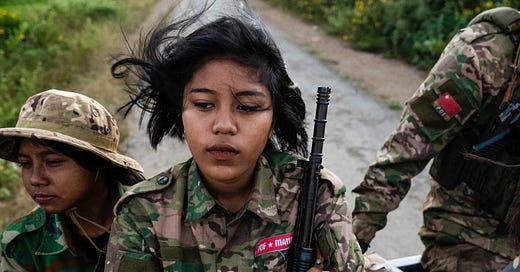


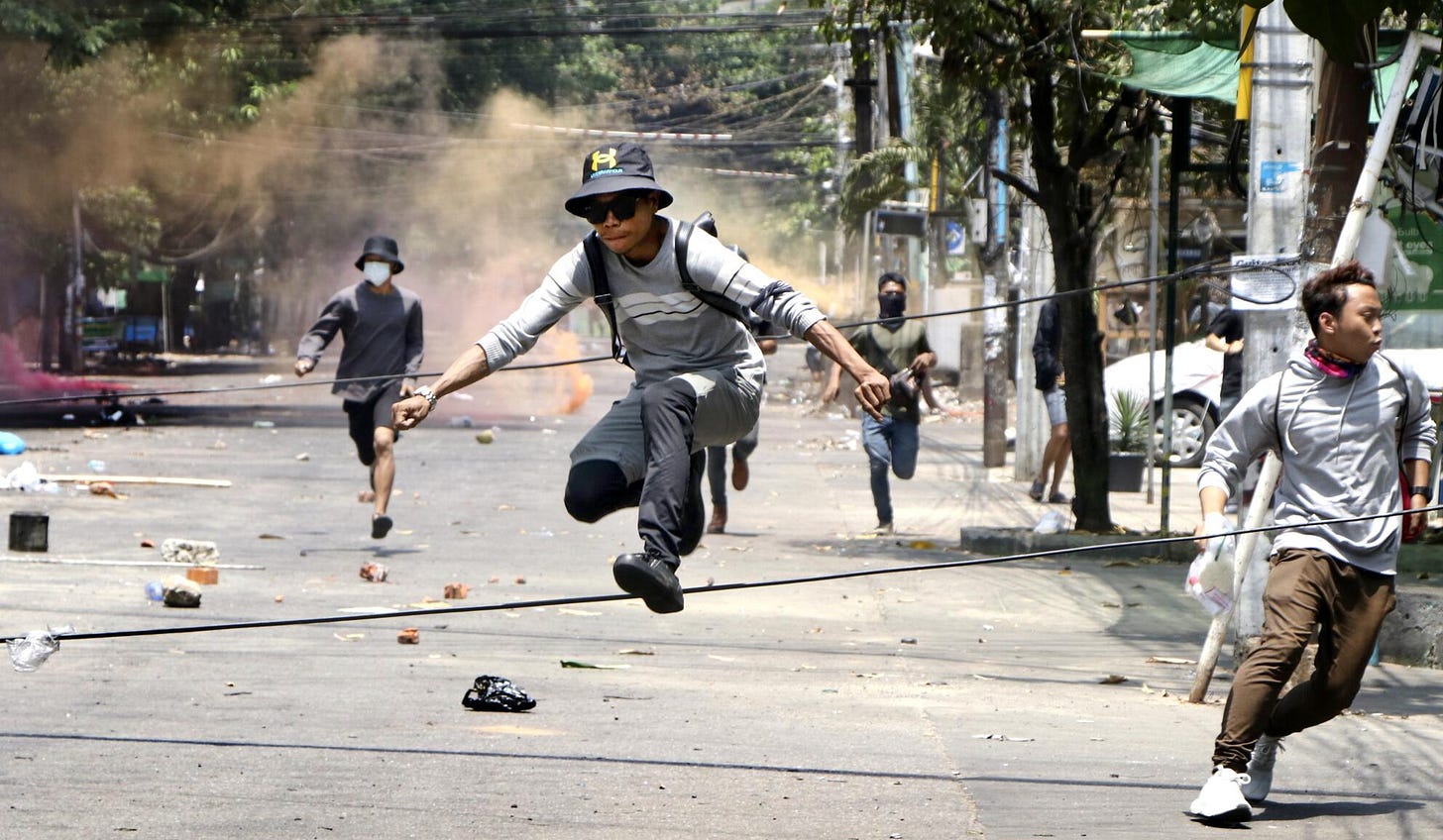

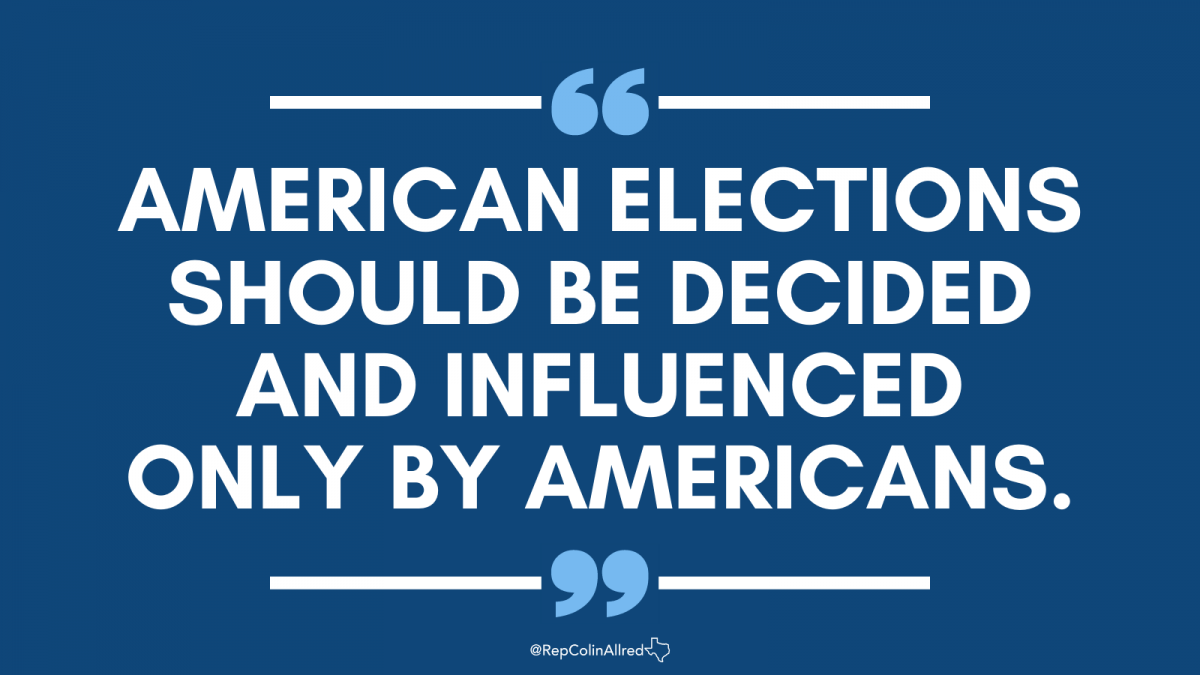



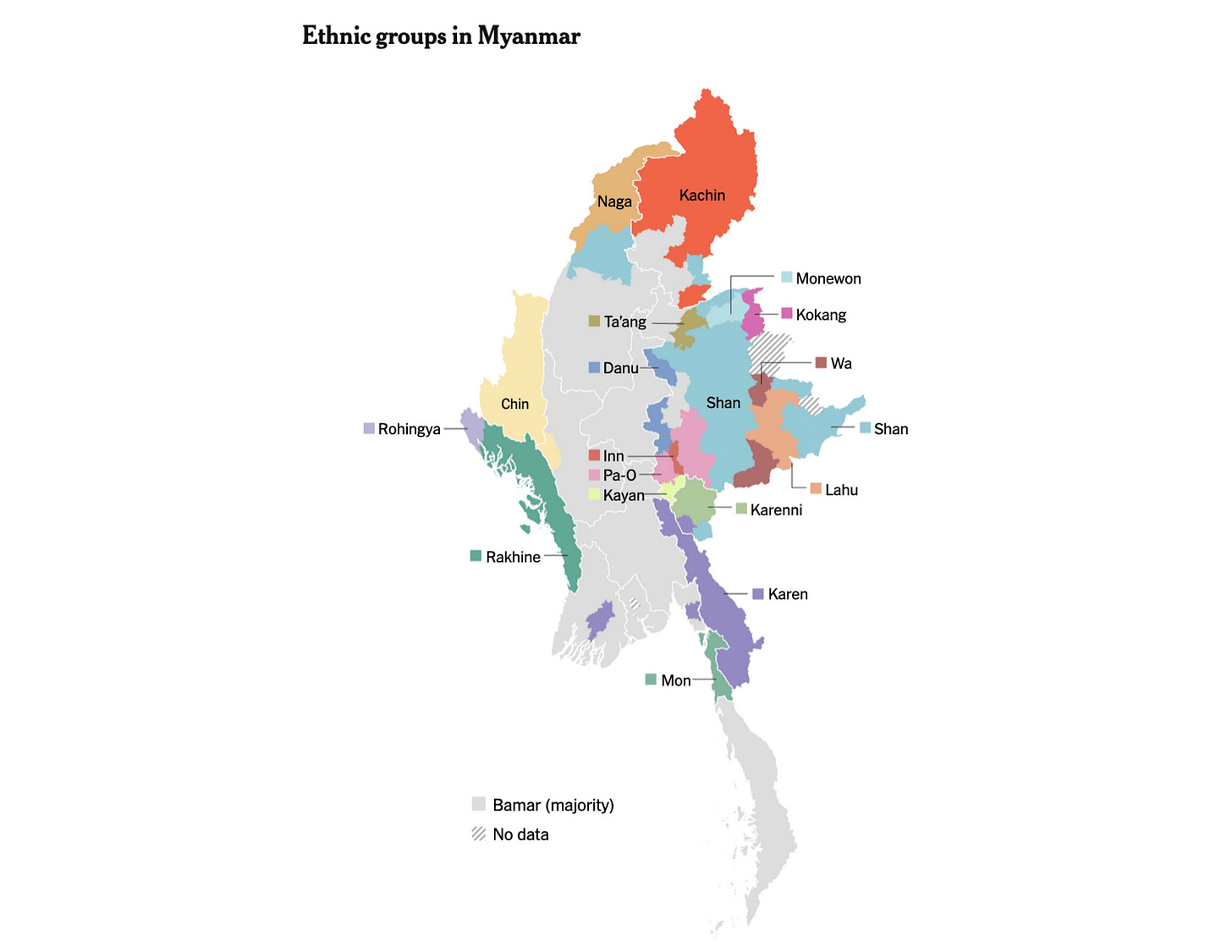
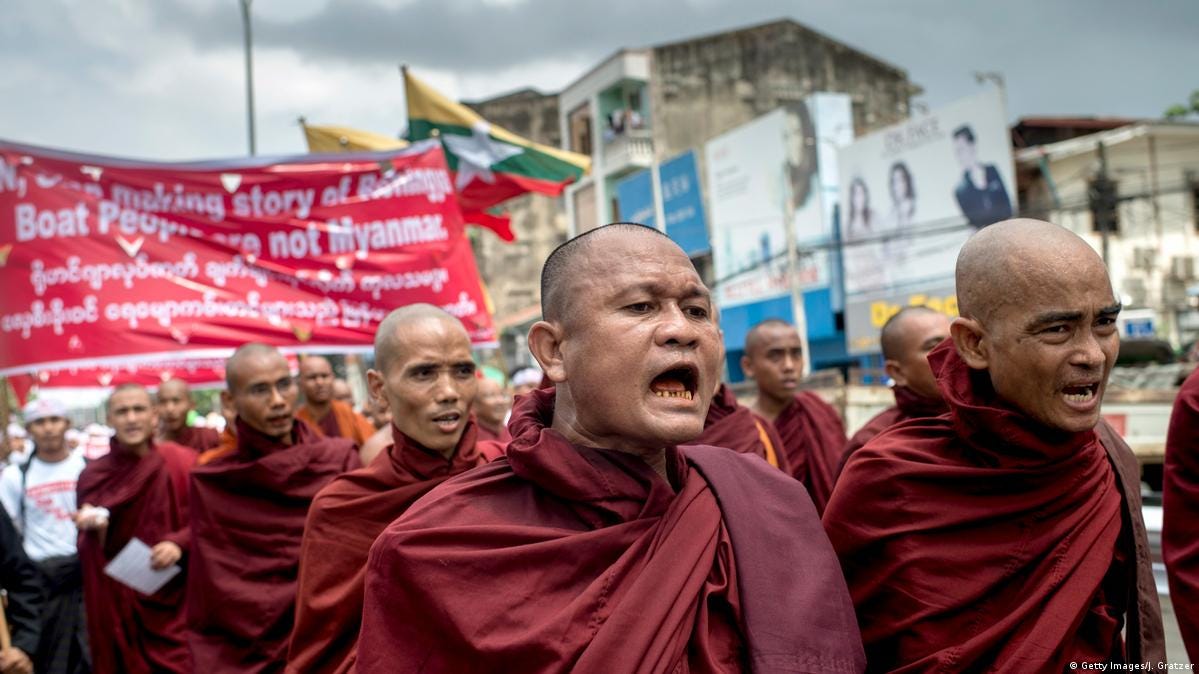

A very basic and typical problem with democracy is its vulnerability to the influence of money, whether from a foreign state, from corporations (many of them with no loyalty to any state), and from well-heeled individuals.
That nowhere is truth more vulnerable than in the "democratic" USA was pointed out long ago by Alexis de Tocqueville ('Democracy in America'), because money controls media and media dominates public opinion.
Aloha Seth,
I am writing from the Hawaiian Island in the Hawaiian Kingdom in continuity. Here we have in a nutshell all the consequences of European/US imperialism that thrives until today on pitting different peoples/cultures against each other. Now karmically the chickens are coming home to roost, and how are we, in Hawaiian called "haole", meaning "without divine breath" dealing with that? With the typical German post-war guilt complex implemented by relentless US/Zionist propaganda, I first wanted to immigrate to West Africa like my lifetime role model Susanne Wenger. Google her, she was very interesting, and meeting her and having her explain her work on-site was one of my lifetime peak experiences. But then I ended up here drawn by the voice of Israel Kamakawiwo'ole, especially the song "Hawai'i 78". (https://youtu.be/qyQGn6E3Lcg?si=-1xc4EjrmI-regS0) The Hawaiian lines in that song mean "The life of the land is perpetuated in righteousness", and for me the beginning of our modern ecological movement, that this song sprang from starting in Kaho'olawe (https://youtu.be/0OpOm6m3SVU?si=UVtmMtU2mvHPd6Xs).
Walter and Loretta Ritte, shown in this historic footage, are still alive and politically very active and would be some of the top go-to people here for introducing your/Steiner's theories and ideals. But I also can connect you with others who now work more theoretically than the Rittes on the UN level.
How can we, raised with slogans like "think global, act local" amend and rectify the misdeeds of our ancestors without committing new cultural patronizing? How can the rebels in Myanmar be reached with Rudolf Steiner's theories?